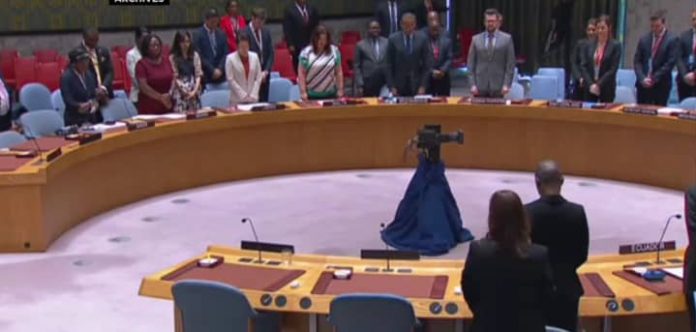The Security Council on Tuesday has adopted a resolution to extend the authorization for the African Union Transition Mission in Somalia (ATMIS) for six months, till Dec. 31, 2023.
In April 2022, the Security Council approved the replacement of Amisom (African Union Mission in Somalia), created in 2007, by Atmis (African Transitional Mission in Somalia), also led by the AU but with a reinforced mandate to combat the Shebab Islamists, until the end of 2024.
On that date, the Atmis contingent, which until then comprised over 19,000 soldiers and police officers, will have to be reduced to zero, gradually transferring its activities to Somali forces.
Under previous Security Council resolutions, Atmis began withdrawing 2,000 soldiers a few days ago, to be completed by the end of June.
This withdrawal is “almost complete”, said Deputy Somali Ambassador Mohamed Rabi Yusuf on Tuesday, assuring that his government would undertake the “necessary preparations in coordination with the African Union for phase two and the withdrawal of 3,000 Atmis troops by September”.
The resolution adopted unanimously on Tuesday, which authorizes the mission until December 31, 2023, provides for the withdrawal of a further 3,000 personnel by the end of September. The new ceiling will be 14,626 troops from October 1 to December 31.
The Council also says it is “ready to review these figures” in the light of the results of a technical assessment to be provided by Somalia and the AU by September 15, in particular to “evaluate” the first phase of the drawdown and provide “a clear plan and timetable” for the remainder.
The resolution, noting Somalia’s “progress” against the Shebab, nevertheless expresses “great concern” at the “grave threat to peace” that the group, affiliated to al-Qaeda, continues to pose.
“We must not rush to withdraw the African mission,” pleaded Deputy Russian Ambassador Anna Evstigneeva. “Creating a security vacuum is not acceptable”, she added.
Against this backdrop, Somalia again called for the arms embargo to be lifted.
“The partial UN arms embargo against Somalia hinders the ability of the Somali federal government to provide adequate resources to its security forces to counter the ever-changing shebab threat,” said Mohamed Rabi Yusuf.
In November, the Security Council renewed the arms embargo in place since 1992. This embargo no longer applies to deliveries of weapons intended for the development of Somalia security forces, but such deliveries must still be notified to the UN committee responsible for these sanctions, which can oppose them for certain heavy weapons.











